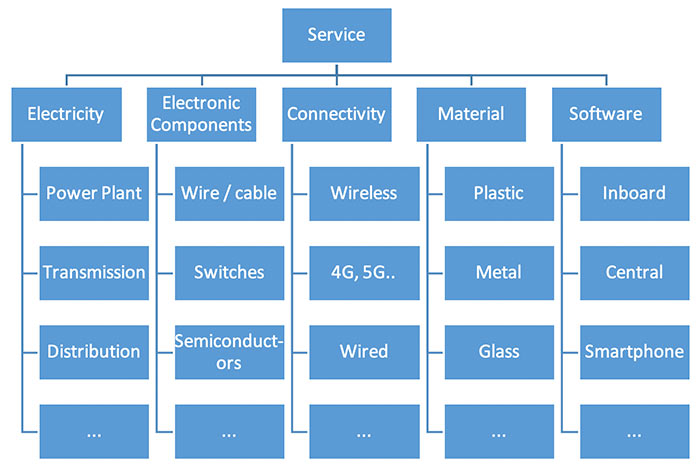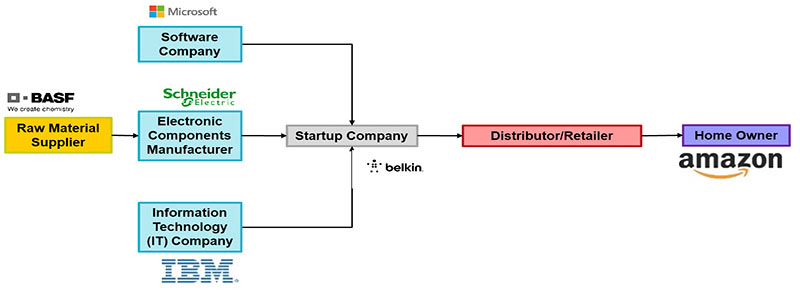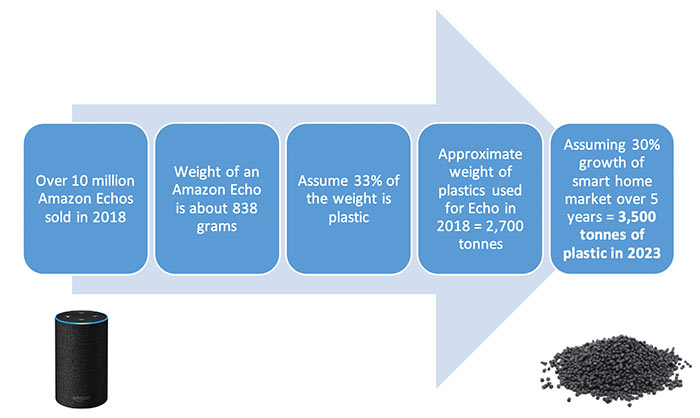Tags : Engineering plastics flame retardant Market Size for Smart Home

The Smart Homes Market
What is the Smart Home market?
The growth of technology and electronics has been apparent for many years and has emergd almost every market imaginable. One of the markets that is following that trend is the housing industry, known as smart homes or home automation. Technology is used in homes to create convenience and control and to advance safety/security of our homes.
The smart home market can be broken down into 8 different subsegments:
- Security & Safety Systems
- Audiovisual / Entertainment
- Smart Energy
- Smart Kitchen
- Connected Health
- HVAC & Lighting
- AI & Natural Language Processing
- Home Robotics
How is the smart home service delivered?

What does the value chain look like?
It may seem like the market is dominated by large players like Amazon, Honeywell, Johnson Controls, LG, Nest, Netgear, Philipps, Samsung, Schneider Electric, Siemens, Xiaomi,…. but there are many opportunities for new players throughout the different market subsegments. Here is an example of a simplified value chain:
In 2016 there were nearly $2 billion in investments injected to the Smart Home market worldwide. Over the past two years investments continued as well. Furthermore, over the past 10 years there have been a significant number of startups. The United States leads with over 600. China and the UK have had about 100 start ups each. Other countries like Canada, France, Germany and India have each had about 50 startups in that time span.
Recent Start-Ups that gained recognition in 2018

The Smart Home industry can also be used to help incorporate the circular economy mindset. Energy conservation is a key segment of the smart home industry as companies are continually trying to incorporate renewable energy and reduced energy consumption. Also, recycled materials can make an impact on the electronics industry and be integrated into various household appliances and products.
Trends and Market Sizing:
The Global Smart Home market revenue was valued at about $33.7 billion in 2017 and is projected to reach $112.8 billion in 2022. If the forecast fulfills itself the Smart Home market would grow at a ~30% annual growth rate in just 5 years.
Over the past year there has been an astonishing growth of voice-activated technology. Digital assistants and smart speakers are projected to continue to grow in popularity. Cross-platform connectivity is another trend that is growing. The convenience of having all of our devices connected and controlled by a centralized app on our phones is appealing to consumers.
Impact on the Chemical Industry:
There are countless business opportunities integrated within each of these segments for various players. Companies that are already integrated into electronics manufacturing could experience growth in current business, and since technology is constantly changing there could be opportunities for players to introduce their products to application areas. On a deeper level, this projected growth offers potential for additive and plastic manufactures.
Engineering plastics are commonly used in electronic applications due their increased temperature resistance. Additive manufacturers, like flame retardant producers, would benefit because materials for electronics are often regulated to require flame retardancy and materials with higher performance technical characteristics.
Here is an example of a rough calculation of how smart home growth could affect the plastics industry. With projected growth plastic suppliers could see a total of 3,500 tons of plastic used in 2023 just for 1 product; an Amazon Echo:

If you want more information or develop a Market Strategy for Smart-Home in US, Europe, Asia.
For nearly 20 years, we have been assisting our clients to understand the evolution of their markets with technical expertise and specific know-how in Business Consulting. If you are interested in getting a deeper understanding of the Smart Home industry, we are your partner for New Business Development, Market Analysis/Assessment, Market Sizing, Market Strategy and Business Growth projects.
For more information please contact us: contact@daydream.eu or contact@dynovel.com









